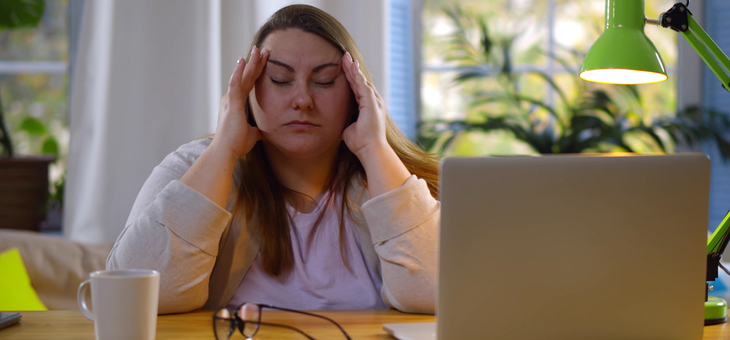One quarter (25.6 per cent) of Australians undergoing a health check have been identified as at risk of developing diabetes. And more than half (55.6 per cent) recorded a body mass index (BMI) above 25, which is considered overweight.
These figures are outlined in Australia’s Health Report: when healthcare meets self-care, which analysed 755,778 free health checks taken at Priceline pharmacies between November 2018 and October 2020.
The health checks test and monitor participants’ vital signs including blood pressure, body composition, BMI, heart rate and age, diabetes risk, and stress score.
Women were healthier overall than men, with better results for weight, blood pressure, diabetes, and smoking prevalence.
Women had a healthier BMI (47.9 per cent reported a high BMI rate compared to 65.4 per cent for men), smoked less (13.8 per cent compared to 18.1 per cent), had lower rates of high blood pressure (10.8 per cent and 14.8 per cent) and a lower prevalence of diabetes (4 per cent to 5.8 per cent).
However, 8.8 per cent of women reported high stress levels compared to 5.1 per cent of men. The overall rate of stress, 7.1 per cent, is comparable to the 2017-18 Australian Bureau of Statistics (ABS) National Healthy Survey, where an estimated 13 per cent or 2.4 million Australians aged 18 and over reported high or very high levels of psychological distress – a 12 per cent increase from 2014-15 (11.7 per cent or 2.1 million Australians).
Gen Z (people born between 1997 and 2012) were almost five times more likely to record ‘high’ stress levels than Baby Boomers (those born between 1946 and 1964).
And not surprisingly, the COVID-19 lockdown resulted in a higher prevalence of stress across Australia, except in the Australian Capital Territory.
“Stress triggers are different for everyone, across all generations, so it’s important to recognise what your personal triggers are and how you can keep these under control,” said Priceline pharmacist Justin Withers.
“Habits such as smoking often arise from the mismanagement of stress, so it is essential to consider things holistically and see a health professional or come in for a health station check as a great first step.”
GP Dr Preeya Alexander says stress management aims to help patients make simple lifestyle changes, such as maintaining a healthy diet, getting enough sleep, exercising regularly and limiting caffeine and alcohol intake.
The report also found Australians were more likely to gain weight in 2020.
“An analysis of an 1800 strong cohort of Priceline Pharmacy Health Station users found that this group collectively lost 731 kilograms in 2019. In 2020, this same group recorded a collective weight gain of 845 kilograms,” the report says.
Obesity remains one of the greatest issues affecting the health of Australians. Almost two in three (65.4 per cent) male respondents and 47.9 per cent of women were obese or overweight. Again, Australians were more likely to have gained weight in COVID-affected 2020 compared with the previous year.
People aged 65-74 had the highest BMI rate (72.2 per cent).
Dr Alexander says obesity is an “extremely complex medical condition”.
“Obesity is often misunderstood by the community with people assuming that it’s a choice related to over consumption of food or sedentary lifestyle. However, this is not the case – obesity involves a range of metabolic, genetic, environmental and social factors to name a few,” said Dr Alexander.
Priceline pharmacist Justin Withers says it’s important Australians don’t think they are alone in their weight battles.
“Support, resources and health professional guidance are available to make healthier lifestyle choices,” he said.
The other worrying result from the report is the prevalence of high blood pressure, with one in eight respondents classified as hypertensive.
The World Health Organization (WHO) warns that hypertension – or elevated blood pressure – significantly increases the risks of heart, brain, kidney and other diseases. The health report says it is also associated with such conditions as kidney dysfunction, nerve damage, vision problems and sexual dysfunction.
Do you have regular health checks? Do you know your BMI, stress level and blood pressure?
If you enjoy our content, don’t keep it to yourself. Share our free eNews with your friends and encourage them to sign up.
Related articles:
https://www.yourlifechoices.com.au/health/blood-pressure-medication-helps-even-the-frailest-seniors-live-longer
https://www.yourlifechoices.com.au/health/covid19/aussies-much-more-willing-to-be-vaccinated-than-americans
https://www.yourlifechoices.com.au/health/covid19/higher-costs-more-errors-when-medicines-scarce-due-to-covid

